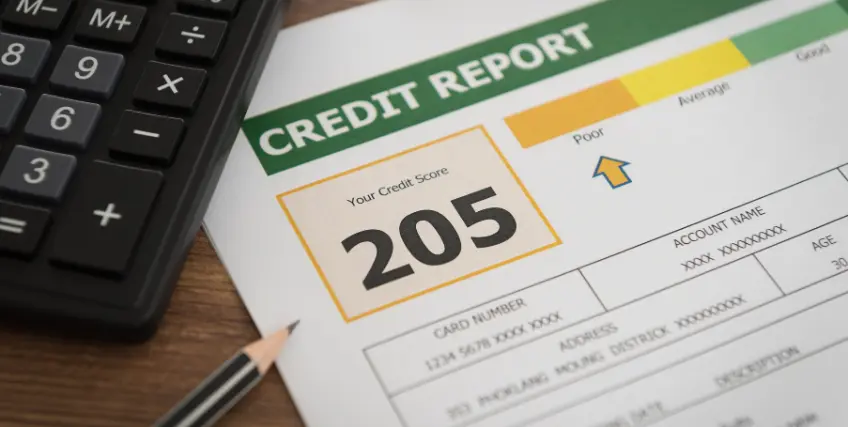How MCA Business Funding Can Help Seasonal Businesses Thrive
March 4, 2025 | Last Updated on: March 4, 2025

Seasonal businesses regardless of sector can struggle with consistent cash flow. This is where MCA business funding can come in. A merchant cash advance offers fast, flexible financing that can bridge the gap between high and low seasons, providing the working capital needed to prepare for busy periods or stay afloat during slow months.
Here’s what you need to know about cash advances for small businesses, the advantages of using a speedy financing option, and how you can use it to your advantage.
What Is An MCA, and How Does It Work?
A merchant cash advance (MCA) is a merchant funding option for merchants to sell future credit card sales in exchange for an upfront lump sum. This can be a great option for businesses that need to receive a quick cash infusion for urgent needs like meeting payroll, purchasing inventory, or taking care of an unexpected expense.
The application process is quite simple. A MCA funding provider will look at your bank statements, accounts receivable, and potentially check to see if you have bad credit when you apply. The advance amount will vary based on how much in receivables the business has, and what you qualify for.
The advantage of the repayment terms is that it will fluctuate based on the income for the business. For example, if December is a high month for your business, your payment will go up. However, if your credit card transactions are down in January, your payment will go down in tandem. This is a significant advantage against traditional bank loans that may have a fixed monthly payment. The payments will be deducted automatically from your business bank account until the advance is paid in full.
Lastly, keep in mind that a merchant cash advance doesn’t come with interest rates, but rather a factor rate. This is the cost of the loan charged to the merchant.
Why Seasonal Businesses Struggle with Traditional Loans
Seasonal businesses can face difficulties securing financing through traditional bank loans can be an uphill battle. Here are the key reasons seasonal businesses struggle with traditional financing:
- Irregular Cash Flow: Banks prefer lending to businesses with steady, predictable revenue throughout the year as it mitigates risk for the bank.
- Strict Credit and Revenue Requirements: Traditional lenders often require strong credit scores and consistent revenue streams to approve business financing.
- Lengthy Application Process: Applying for a traditional loan involves extensive paperwork, including financial statements, tax returns, and business plans. Seasonal businesses may not have the bandwidth to manage these time-consuming processes during their busiest times.
- Collateral Requirements: Many traditional loans require collateral, such as real estate or equipment. Borrowers that run seasonal businesses and other types of businesses may not have the assets to securitize a traditional bank loan. This is where merchant cash advance companies can come in to help.
Benefits of MCA Business Funding for Seasonal Businesses
A merchant cash advance (MCA) provides a flexible, fast, and accessible financing solution tailored to the unique needs of these businesses. Below are the key benefits of MCA funding and how it can help seasonal operations thrive.
- Fast Access to Capital: MCA funding options may be able to provide access to cash within a few days.
- Flexible Repayment Structure: MCA repayments are based on a percentage of your future sales. This means your payments will go up and down depending on the performance of the business.
- No Collateral Required: MCA providers don’t require collateral to securitize the loan.
- Easier Qualification: MCAs rely on your business’s sales performance, not your credit score or year-round revenue. This can make eligibility a breeze if your business is performing well.
Things to Consider Before Applying for MCA Business Funding
Merchant Cash Advance: MCA funding can offer several advantages for seasonal businesses. But just like any other financial decision, it’s essential to weigh other funding options before choosing one. Here are some factors to consider before applying for an MCA:
- Higher Costs Compared to Traditional Loans
Instead of interest rates, MCAs use a factor rate (e.g., 1.2 to 1.5) to determine the total repayment amount. This means that the payback amount can be significantly more than what you’re given, making it a more expensive small business financing option.
- Impact on Daily Cash Flow
Since MCA repayments are automatically deducted from daily or weekly sales, it can put pressure on your balance sheet. It’s important to know exactly how much in future sales will go away if you decide leveraging future credit card receipts is the right form of financing for your business.
- No Fixed End Date for Repayment
Unlike traditional loans with a set repayment schedule, MCA repayments are tied to sales volume. While this offers flexibility, it also makes it difficult to predict exactly when the advance will be fully repaid. If sales are slower than expected, the repayment period could extend longer than anticipated, increasing the overall borrowing cost.
- Borrowing Only What You Need
Like any financial product, it’s best practice to only borrow what you need. Whether its a business line of credit, credit card or merchant cash advance, borrowing more than you need can be a financial disaster in the making. If the funding amount is more than you need, speak with your lender to see if you can get it reduced. This can bring down the total cost and additional fees.
Final Thoughts on MCA Business Funding
Small business owners that have seasonal businesses face unique challenges that year-round businesses don’t. A shorter business cycle means capital needs could be even more crucial. This is why using merchant cash advance may be a better type of merchant funding than a traditional short-term loan for your business needs.
FAQs about Seasonal Business and Merchant Cash Advances
What is MCA business funding?
MCA funding is a form of business cash advance where lenders sell future receivables for an upfront cash payment.
What is a merchant cash advance?
A merchant cash advance is a fast funding option for businesses who need capital quickly. This works by businesses selling future income for an upfront lump sum.
How do I apply for a merchant cash advance?
There are several options for getting a cash advance for small businesses, including a merchant cash advance. The application process can go quickly as many MCA companies only need a few things, including documentation of monthly revenue, credit card processing history, and potentially your credit score.
How does a merchant cash advance affect my cash flow?
A merchant cash advance can affect your monthly cash flow as the payments to pay back the advance are taken from your future income. These payments are typically daily or monthly.
Frequent searches leading to this page
mca business loans, sba lenders near me, small business merchant cash advance, merchant funding services
Recent Articles
Related Articles

Can You Renegotiate Terms on MCA Cash Financing After a Default? What Business Owners Need to Know
November 27, 2024

Business Loan or Merchant Loan? Understanding Loan Options for Your Business
November 25, 2024

Avoiding the Debt Trap: How Stacking MCA Business Financing Can Hurt Your Business Credit
November 7, 2024

Why MCA Business Funding May Be Ideal for Retailers Looking to Expand Inventory
November 5, 2024

Merchant Cash Advance vs. Asset-Based Lending: Which is Right for Your Business?
January 10, 2025

Merchant Cash Advance vs. Traditional Business Loans: Which is Right for Your Business?
January 10, 2025

Merchant Cash Advance vs. Line of Credit: Which is Right for Your Business?
January 9, 2025

5 Things Every Small Business Owner Wishes They Had Known When They Started
January 9, 2025

































